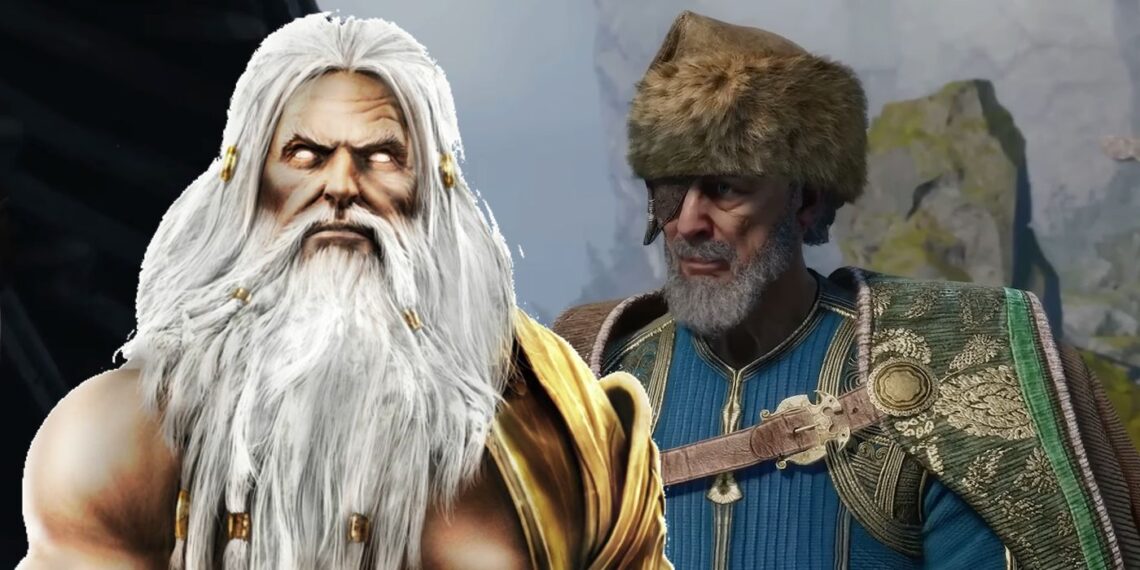Select Language:
While the original trilogy of the God of War series concluded on a definitive note, the launch of the Norse Saga revitalized the franchise in an impressive way. This new chapter provided Kratos with a chance for redemption, moving away from his previously brutal quest for vengeance, while introducing conflicts with the gods of the Aesir, such as Baldur, Thor, and Odin. Accompanied by his son Atreus, the narrative of the Norse Saga resonated with many players, ultimately leading to the first game in the series winning Game of the Year and Ragnarök following closely behind.
Given the success of the franchise and hints at exploring other mythologies within the Norse Saga titles, it’s no wonder that fans are eager for another game and speculating about potential new directions for the series. Týr’s appearances in Valhalla, where he showcases his travels to other realms through various weapons during boss battles, further fueled these theories. With the green light for a second season of the Amazon Prime series, it seems the God of War franchise will continue for the foreseeable future.
Egyptian Myth Is Perfect For A God Of War Sequel
It Is The Best Choice Compared To Other Suggested Mythologies
According to GameRant, a new God of War game could be in development, which isn’t surprising considering it has been two years since Ragnarök. Although Valhalla effectively wrapped up Kratos’ redemption journey, there remains much to explore regarding his new identity as the God of War (or God of Hope) and Atreus’ quest to discover the hidden giants. Throughout the Norse Saga, the series has hinted at four different mythologies: Japanese, Aztec, Celtic, and Egyptian.
The series has hinted at four different mythologies throughout the Norse Saga: Japanese, Aztec, Celtic, and Egyptian.
The first three mythologies were explored more thoroughly through Týr’s weapons, but Egyptian mythology appears to be the best fit for the series. Japanese myths and ancient Japan have already been featured in numerous recent games, such as Sekiro, Ghost of Tsushima, and Assassin’s Creed titles, making the entry of God of War into this competitive market potentially less viable. In contrast, Egyptian mythology has not been as frequently utilized, but it is sufficiently recognizable for the average player to be excited about seeing its gods in a game adaptation.
Týr has four variations of his boss fight in Valhalla, during which he wields different weapons from various mythologies. In the final encounter, he uses all four.
Celtic and Aztec mythologies are less familiar to many audiences, with Celtic myths significantly affected by Roman and Christian suppression. While Irish myths are the best preserved, they have been altered by strong Christian influence. Although Norse mythology has faced similar challenges, it remains relatively intact through sources like the Poetic Edda. Utilizing Aztec gods may also pose complications, as they still receive worship from the Nahua community, which could introduce problematic elements into an adaptation.
Greek and Egyptian Myths Are Connected
Zeus and the Greek Gods Visited Ancient Egypt
Introducing Egyptian mythology in a sequel would provide a seamless transition due to its ties with Greek mythology. Various interpretations of these myths suggest that when the gods fled Typhon, they took on animal forms and escaped to Egypt, explaining the reverence Egyptians had for animal deities. This historical syncretism offers an engaging premise for incorporating Kratos into an Egyptian setting, especially considering Atreus’s shape-shifting powers.
Atreus can utilize giant magic, allowing him to imbue objects with souls and give those souls physical forms.
As Atreus possesses the ability to transform into animals, his journey to locate the hidden giants could lead him to Egypt. The ensuing conflict could arise when the Egyptian Pantheon mistakes Atreus for a Greek god attempting to infiltrate their territory, particularly given the survival of some gods from the original trilogy, such as Aphrodite. This misinterpretation might prompt Kratos and other Norse gods to journey to Egypt as ambassadors, given Kratos’s historical connections to the Greek pantheon, potentially igniting a conflict over his son.
Santa Monica Studio doesn’t necessarily need to emphasize the Egyptian-Greek mythology connection, but it certainly exists to facilitate the narrative if required. Egyptian mythology features iconic figures like Anubis, Ra, and Horus, alongside a fascinating afterlife realm to explore. The vast deserts of Egypt would serve as a dynamic setting packed with diverse monsters to confront, and there’s room to reintroduce creatures from Greek mythology, as there often is crossover (both myths include the Sphinx). It just feels like a natural progression.
God Of War Deserves To Continue For As Long As Possible
Another Generation Has Already Been Established
The God of War franchise has a rich history; even after two decades, fans are still clamoring for more. PlayStation has not nurtured their older characters in the same way they have with Kratos; consider how Lara Croft had a brief, controversial period as an Xbox exclusive, and Crash Bandicoot is now with Activision Blizzard. The God of War series stands as one of the longest-running franchises that PlayStation still exclusively owns, so why stop now when Kratos remains relevant among newer icons like Ellie and Aloy?
If Cory Barlog remains at the forefront of the series, God of War can carry on with its cinematic approach, and as long as it adapts to the evolving standards of modern gaming, there’s no reason the franchise can’t thrive. The series has consistently maintained high quality, producing two excellent titles rather than a series of inconsistent spin-offs, as seen with many surrounding the classic trilogy. Egyptian mythology stands out as an ideal avenue for the series to explore, and it should extend as far as possible.
With the upcoming Amazon Prime series and the God of War franchise celebrating its 20th anniversary alongside two critically acclaimed, award-winning titles, the value of the IP is probably at an all-time high. Sony enjoys profitability, fans adore Kratos, and players appreciate outstanding games, so moving into Egyptian mythology for a new God of War installment is a logical next step. This could yield a defining title for the PS5 before the console reaches the end of its lifecycle, especially since both Norse Saga games could also be played on PS4, arguably making them products of that generation.
Source: GameRant





